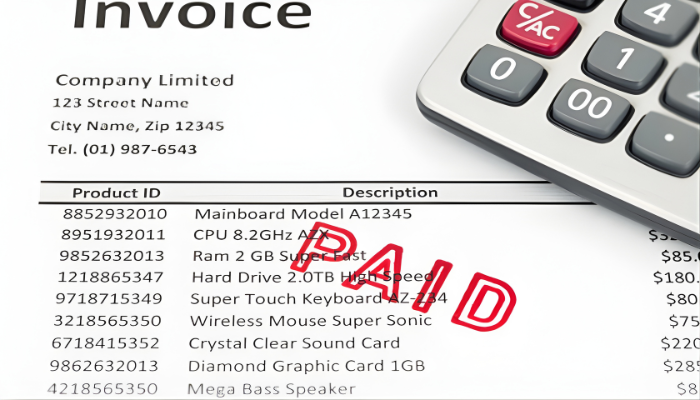
Making responsible financial decisions for your company requires that you do your research and gather facts before signing any paperwork. When researching factoring, you may want to know what to expect before, during, and after this transaction.
Your research may uncover benefits about which you were previously unaware. You can be confident about your decision to sell your invoices by anticipating these eight aspects about factoring.
Factoring versus a Loan
One of the most important things to realize about factoring is that you are not applying for a loan or taking on new debt. In fact, you are selling your unpaid invoices and receiving money upfront for them.
Because you have not taken on a bank loan, you will avoid having to make a monthly payment or paying interest that your business may not be able to afford. The money you receive comes directly from the value of your invoices.
Small Business Financing
Banks are extremely reluctant to loan money to small business owners. You most likely will be turned down and told to wait until your company is more established and making more money.
When you apply for factoring, you avoid common bank loan approval tactics that include:
- Rigorous credit checks
- Collateral appraisal
- Extensive paperwork
- Application and processing fees
Instead, your factor will be more interested in the credit and payment history of your clients. You will not have to pay any fees, and you can expect to hear if you are approved within a matter of days, if not hours.
Faster Approval
As noted, it often takes factors only a matter of days or hours to approve applicants. Unlike a bank, which could keep you waiting for weeks, your factor works quickly to verify the accounts receivable and get you the money you need now.
The verification process typically involves making sure the invoices are signed and that your clients can pay their obligations on time. Once these details are checked out, you can have your money deposited in your account promptly.
More Upfront Money
Banks limit people on the amount of money they can receive at one time. They require that you pay off your first loan before you can ask for more money.
When you factor your invoices, however, you can get more money than you could receive through a bank loan. The amount of cash that you can get will be based on the number and the value of invoices you sell to the factor.
Short-term Commitment
When you are financed through a bank, you must maintain your relationship with the lender until the loan is paid off in full. This commitment could last for months or years.
A factor does not require such a long commitment and instead gives you the option of how long to maintain your relationship with it. Once your clients pay their invoices to the factor, you have the option of closing out your account or selling more invoices to get additional cash for your company.
Collection Relief
You may not have a lot of time in your busy day to contact invoice clients and ask for payment. By factoring your accounts receivable, you hand this duty over to the factor and free up time to run your company. The factor will take over collection on invoices by:
- Contacting your clients immediately after buying the invoices
- Instructing them to send payment to the factor instead of you
- Negotiate any disputes about owed amounts
- Collect on invoices quicker in some cases
Factoring your invoices lets you avoid the time-consuming task of having to collect on payments. You also get cash upfront without having to wait the 30, 60, or even 90 day time frame that it could take your customers to pay their accounts.
No Invoice Minimum
Factoring gives you total control over how many and what kind of invoices to sell to your factor. You are not obligated to sell a specific amount or a certain kind of accounts receivable in order to be approved.
You can sell just a few at first and then later sell more after you are familiar with the process. The number of accounts receivable you sell can depend on how much money you need right now for your company.
Cheaper than Bank Loan
Factoring can be more affordable than taking out a bank loan, especially if you have poor credit or no collateral. Banks inflict expensive interest rates on people who have low scores and few or no assets to put up against the financing.
When you factor, you will pay a discount rate for your invoices, which could range from three to six percent in most cases. This rate can be much cheaper than an interest rate charged by a traditional lender.
Choosing financing for your business calls for you to know what to anticipate from your financier. You can expect these eight things when you choose factoring.

















